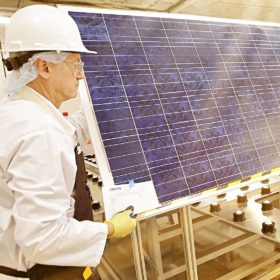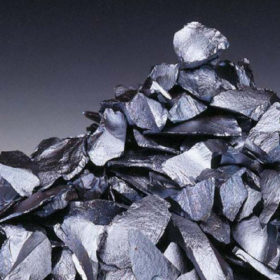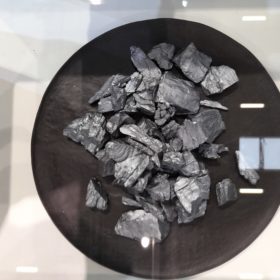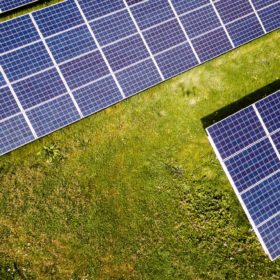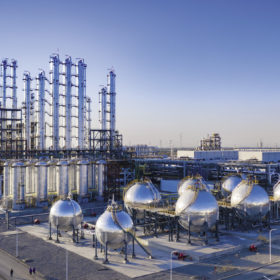Chinese silicon giants cut production, driving price concerns
Major Chinese companies such as Tongwei, Daqo, and GCL-Poly have cut silicon production, driving concerns over rising polysilicon prices.
Competition, oversupply to reduce n-type solar module prices
Global solar demand will continue to grow in 2024, with module demand likely to reach 492 GW to 538 GW. Amy Fang, a senior analyst at InfoLink, looks at module demand and supply chain inventories in a market still affected by oversupply.
Chinese PV Industry Brief: Canadian Solar resumes IPO plans
Canadian Solar has resumed plans for an initial public offering in Shanghai, and JA Solar has reported that it shipped 27.1 GW of PV modules in the first nine months of this year. Daqo, meanwhile, has signed a $17.9 billion, long-term polysilicon supply deal with an undisclosed customer.
Chinese PV Industry Brief: Tongwei temporarily halts polysilicon output in Sichuan
Tongwei is temporarily halting polysilicon output in Sichuan due to high temperatures, while Yingli has completed a 5 GW N-type solar cell base in Hebei. Shangji, meanwhile, has revealed plans to build a massive wafer and solar cell factory in Jiangsu.
Wacker falls to fourth in global polysilicon ranking
The German company’s decision to cede market share to Chinese companies producing the material for solar panels, in order to focus on semiconductor-ready, electronic grade product, has seen it slip behind its rivals in terms of production scale.
‘The major solar players will shift from PERC to TOPCon’
US analyst Clean Energy Associates made some notable predictions in its Q4 survey of the world solar manufacturing market, including echoing predictions made elsewhere that the new polysilicon production capacity coming online now will help arrest the spike in solar panel prices.
Daqo fires up 35,000-ton poly fab
The polysilicon producer is sticking by plans to ramp up manufacturing capacity almost 300% within three years and says it will produce the basic material for the new generation of n-type solar panels.
Daqo CEO predicts polysilicon price will keep on rising
While some analysts have said the raw material shortage has eased sufficiently of late for its selling price to stabilize, the chief executive of Xinjiang-based producer Daqo made bullish statements about his company’s prospects yesterday, based on an expectation of continuing tight supply of the solar panel component.
Silicone fab explosion in Xinjiang threatens further poly shortage
With the solar industry already seeing prices rise because of a shortage of panel raw material polysilicon, an explosion yesterday at the factory of a silicon metal
and silicone producer in Xinjiang could have further repercussions on supply. No casualties have been reported.
Daqo opens Xinjiang polysilicon factory to international observers
The polysilicon manufacturer has once again rejected allegations of forced labor by opening the doors of its factory in China’s Xinjiang Uyghur Autonomous Region to international investors and journalists. Video footage of the event was published by the company on its website.

